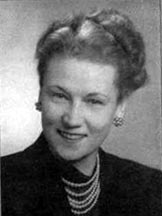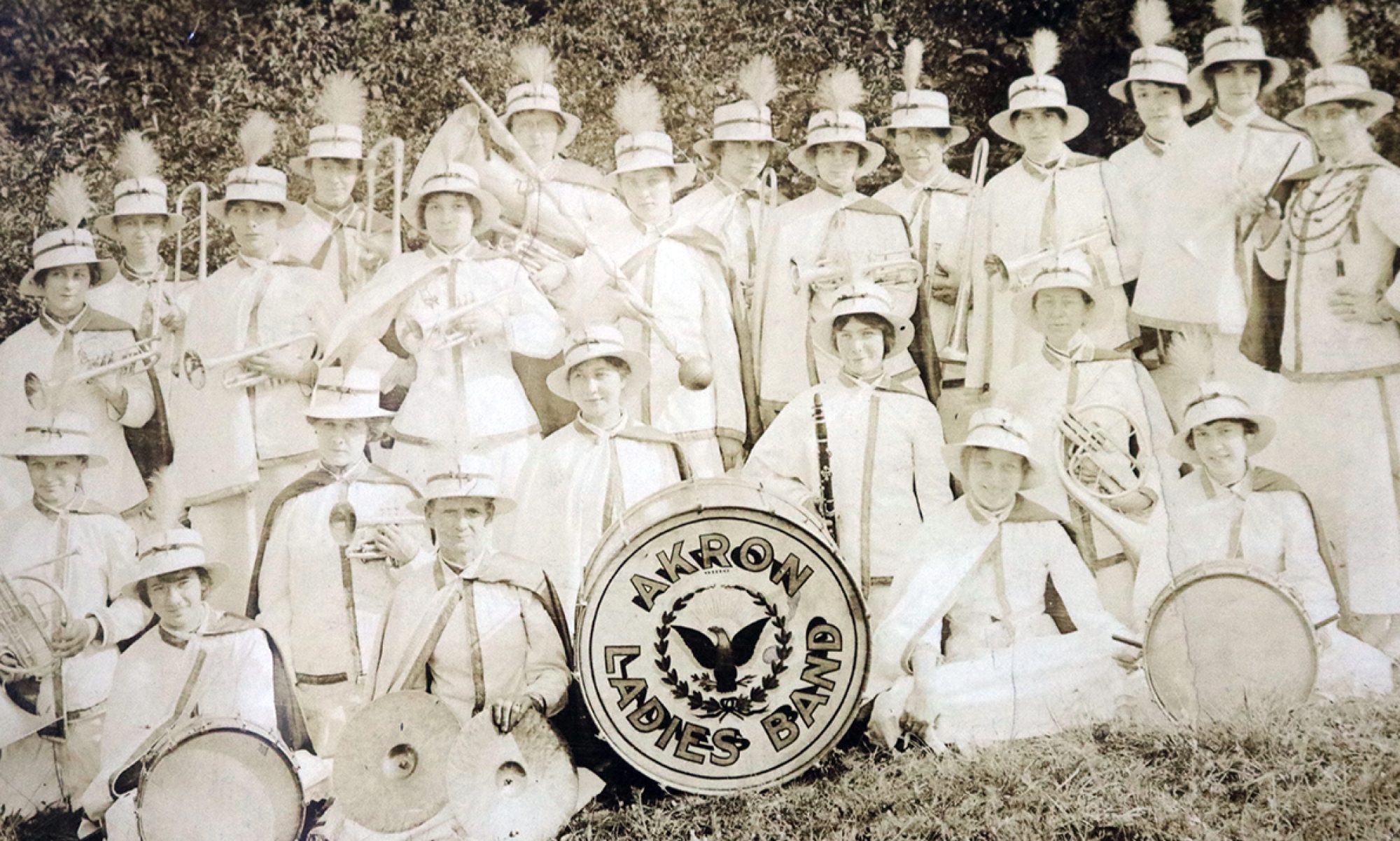
Catherine Rose Biggs Dobbs, only woman mayor of the city of Barberton, Ohio, built her political career on a platform designed to appeal to the woman voter. Women, she observed, “know that they must have candidates for public office that will campaign for the Moral Health of our Great Nation.” Early in her political career, Dobbs, campaigning against corruption and pornography, experienced enormous success. However, after four successful campaigns, Dobbs’ formula wore thin and voters tired of the message.
Catherine Biggs was born in Shreve, Ohio, into a large Wayne County family. The only girl, Biggs had six brothers. Although she always emphasized in her campaign literature that her family went back five generations in Ohio, the family apparently did not have substantial means. She went to public schools in Barberton, eventually graduating from Barberton High School and then went on to night school at The University of Akron, where she studied journalism and political science. She never graduated.
Biggs moved to Columbus where she was an index clerk in the Ohio House of Representatives and a researcher in the Ohio Legislative Library. While in Columbus, she attended Ohio State University, picking up classes in philosophy, government and history.
Her husband, Roy Dobbs, a Barberton pharmacist, had his own political career. From 1942 to 1947, he was mayor of Barberton.
In 1948, Dobbs started her political career by running for the Ohio Senate. Running as a Democrat, Dobbs won the seat, the first woman ever to do so and only one of eight women in the nation to serve in any state Senate. Ohio had two women in its state Senate: Dobbs and Margaret Mahoney of Cleveland.
Dobbs worked hard in Columbus as chair of the Public Health Committee and vice chair of the Elections and Federal Relations Committee. She also served on the Taxation, Finance, Public Works and Agriculture committees. Her constituency, however, was not impressed. Dobbs lost her bid for re-election.
By 1954, she was ready for another political race, this time for her husband’s old job, mayor of Barberton. Campaigning on an anti-gambling and anti-pornography platform, Dobbs won the day and was re-elected twice. During her six years in office, she was the only woman mayor of any industrial city in the nation. Dobbs liked to compare her job as mayor to running a household. “Running a city is like running a household,” she observed to a reporter. “The people depend on me to keep the city running smoothly, just as a family depends on a woman to run the household competently.”
Although she often had a stormy relationship with city hall, she did seem to run the city of Barberton competently. While she was mayor, the city grew in population and physical size. Dobbs oversaw the annexation of the A.O. Austin estate, which included the original Barber mansion, and other key areas. When she left office, Dobbs identified her greatest successes as mayor: completion of Rt. 224 through the city; building of the Tuscarawas viaduct; cleaning up commercial racketeering, and cleaning out the squatters’ shacks along the Ohio Canal.
Subsequently, Dobbs found little political success. Although she ran for Secretary of State, seats in the Ohio House of Representatives and the U.S. House of Representatives and Barberton mayor, she lost every race in the primary, sometimes by significant margins. Dobbs came back briefly in 1967 when she received a United Nations Fellowship Award and a grant to study the status of women in the UN.
Although the voters deserted her at the polls, Dobbs continued her civic/community involvement. Long a supporter of women in politics, she remained active in the Federated Democratic Women’s Club of Summit County (she served as president in 1937). She also was a long-time member of the Business and Professional Women’s Club of Barberton, the Ohio League of Senior Citizens, Akron Women’s City Club and the Akron Art Institute. She also waged an unsuccessful attempt for the preservation of the O.C. Barber mansion.
Dobbs wrote one book, Freedom’s Will: The Society of the Separatists of Zoar — An Historical Adventure of Religious Communism in Ohio (New York: Frederick Press, 1947).
Dobbs died in 1974. She and her husband had no children. Dobbs’ papers are located in The University of Akron Archives.
Photo courtesy of the Women’s History Project of the Akron Area.
–Kathleen L. Endres
